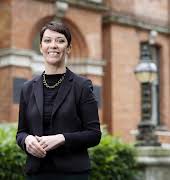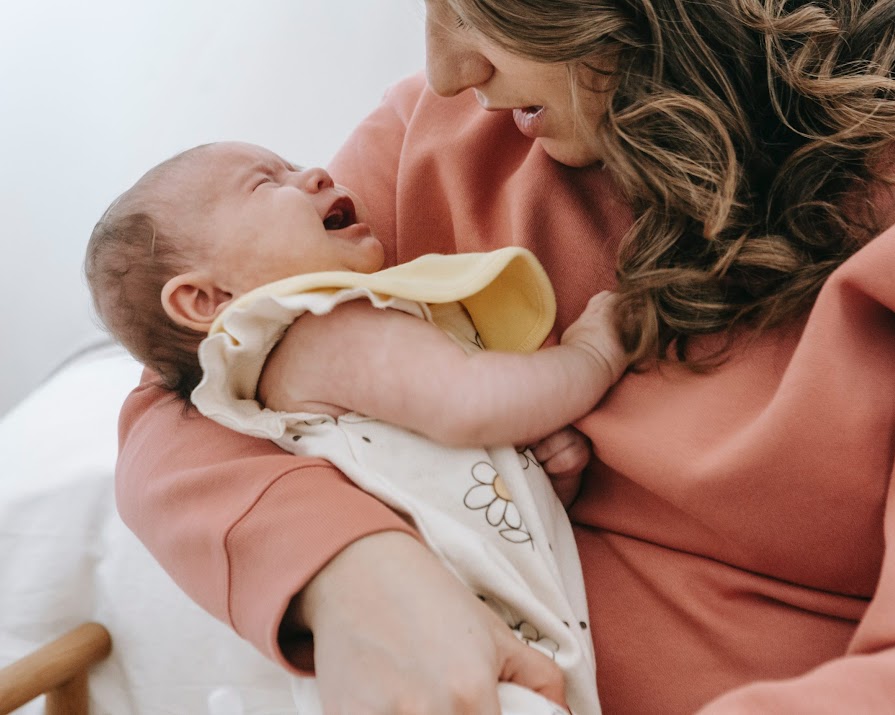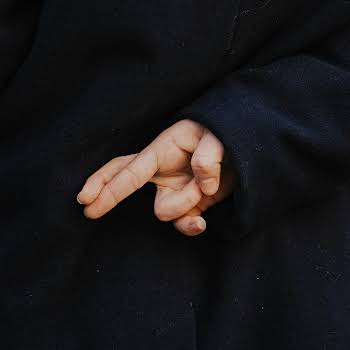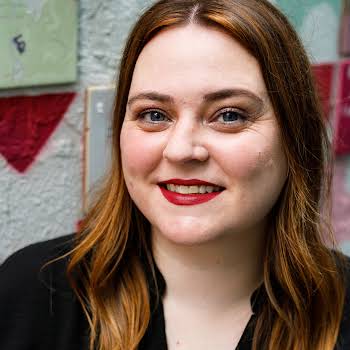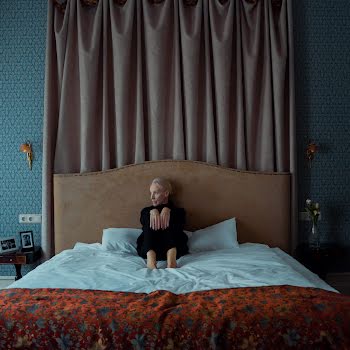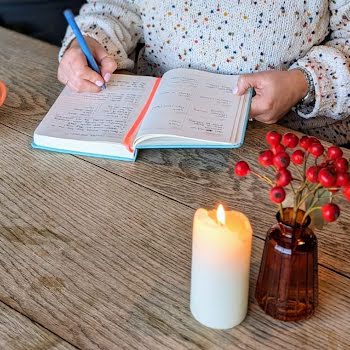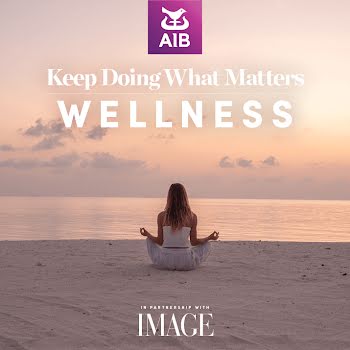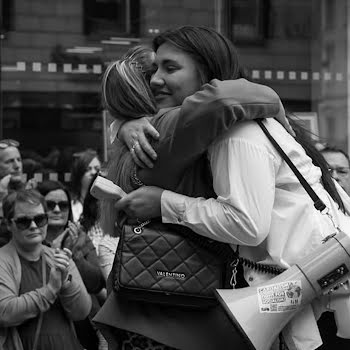
By Dominique McMullan
07th Mar 2022
07th Mar 2022
Postpartum care in Ireland has a long way to go, both in terms of healthcare and attitudes within the community. Dominique McMullan looks at the mindset change that is so desperately needed
The period after childbirth is incredibly challenging. For first-time mothers, this is especially true. While experiencing strong hormones and grappling with big changes emotionally and physically, there is learning how to care for your newborn, how to function as a changed family unit and accomplishing all this on limited sleep.
The Irish Government provides all babies with free extensive checks, appointments and care but new mothers receive shockingly little. Often the sum total is one combined mother and baby check-up at six weeks. That’s it.
Here is a list of common complaints a new mother might have; vaginal soreness, vaginal discharge, new tearing or a seeping wound, after pains or contractions, incontinence issues, haemorrhoids, bowel movement issues, tender breasts, mastitis, infected or cracked nipples, hair loss, skin changes, mood changes and post-natal depression. Apologies if that made you wince. But you understand now, that these may not be the kind of issues you feel comfortable broaching during a single appointment with a newborn on your lap.
Chair of Nursing and Midwifery in Trinity, Professor Cecily Begley says: “Maternity care and information gathering is focused on the pregnancy and birth period. Women have a final check-up 6 weeks after the birth, usually with their GP, when it is ‘assumed’ that her body has returned to ‘normal’. This is the case for a lot of women who stay healthy and well but is not the case for a considerable proportion of women.”
A higher level of care and support
Ireland is lagging behind. In many other European countries, post-natal women will see their GPs for checkups monthly over the first year of their child’s life. These appointments will include thorough physical exams and keeping track of emotional wellbeing.
Regular exams on the abdomen, cervix, vagina and uterus ensure the mother is healing well. Many countries put a long-term focus on the pelvic floor. Pelvic health is one of the cornerstones of French postnatal care and every mother receives subsidized “perineal re-education,” ie. physiotherapy to help strengthen the pelvic floor. Unlike Irish women, the French understand that it is neither normal nor acceptable to dribble or leak urine for the rest of your life after giving birth. The MAMMI (Maternal health And Maternal Morbidity in Ireland) study showed that 54% of postpartum women in Ireland surveyed, reported urinary incontinence on exercise three months after birth.
The immediate physiological and psychological impact of the lack postpartum care in Ireland is problematic.
If Irish women want a comprehensive physical postpartum evaluation, they must seek one for themselves and pay for it privately. There are few places that even provide this service in Ireland (Milltown Physiotherapy‘s ‘Mummy MOT’ is one).
These regular check-ups for mum are about more than the body though. A relationship is developed that allows mood and emotional wellbeing to be discussed as well as conversations about fatigue, sleep habits, contraception, feeding, weight gain or loss, birth spacing and a return to sexual activity.
The immediate physiological and psychological impact of the lack of postpartum care in Ireland is problematic. But the Irish healthcare system is also missing the bigger picture. A high level of care and support for women in the early weeks after birth would, in the long term, mean better and faster recovery, a quicker return to ‘normal’ life and work outside of the home, less chance of suffering from postpartum depression, and a higher chance of breastfeeding, meaning pragmatically, it would save money for the healthcare system in the long term.
A sense that mothers matter
After the birth of her third child, Layla O’Mara suffered mentally, emotionally and physically. She was shocked by the lack of support available for postpartum women in Ireland. She explains, “I had two babies in Germany where there is a really excellent home-based, midwife-led system of support. I then came back to Ireland for baby number three, had a crazy pregnancy where I spent three months straight in the Rotunda and gave birth when Oscar was 32 weeks. Without the support in place that I’d had in Germany, I really suffered.”
What Layla felt was most missing from her birth and postpartum experience in Ireland was a sense that she mattered. “What I had in Germany, and what I really needed here was someone who checked in on just me, asked me how I was, told me I was doing too much, helped me to work out how I could manage juggling a premie in NICU with two other kids and recovery from a c-section. You go into survival mode after birth and your child becomes your everything. You don’t think about yourself. I needed an advocate.
In Germany, you have a midwife who journeys with you from before birth, through birth and then over the early weeks of motherhood. The sense is that she is your guide, there to watch out for you, think for you. Yes, she checks baby is okay too, but YOU are her priority. I felt the reverse of that was true in Ireland. The public health nurse did call out, but she was really there for him, not me.”
Lack of education
It’s not just the healthcare system that focuses its efforts on the baby postpartum. The lack of education and misinformation around postpartum women means that families, relatives, and friends often do the same. This can result in a situation made worse for a new mother. Relatives can expect the new mother to be up and about within days, taking visitors and making tea. Much of the focus at home will be on the baby; holding the baby, cooing over the baby, clothes and teddies for the baby etc. This is obviously all well-intentioned but the lack of care and attention directed towards the mother can leave her feeling isolated, and if she is struggling, worse.
A complete re-education is needed. In an Irish Times article in 2o19, Krysia Lynch, chair of the Association for Improvements in the Maternity Services – Ireland, said her number one tip to new mothers was “under no circumstances get yourselves out of your pyjamas for the first two weeks”. If you are fully dressed, guests will expect you to put the baby down and make them a cup of tea. Don’t let this happen. Perhaps the mother will ask you to hold the baby while she has a shower, but more likely she’ll need you to make her a meal, put a wash on, sweep the floor or fill the dishwasher. Or maybe she will just want to be heard.
“Nearly every country in the world has a tradition of postpartum care for new mothers,”
Irish women used to spend at least a week in hospital after birth. Layla says, “Even one generation back my mother-in-law spent two weeks in a nursing home recovering after each of her four sons births and had a midwife visit every week for at least six weeks after birth”.
“Nearly every country in the world has a tradition of postpartum care for new mothers,” she explains. “In Germany, it is called ‘wochenbett’, in Latin America it is called la ‘cuarentena’, in China it is called ‘zuo yuezi’ or the golden month. In Ireland, lying in or confinement is essentially the same thing (the Rotunda was originally called ‘The Lying In Hospital’)”.
Lying in
Orlaith Donlon, mother of four and former midwife is an advocate of this ‘lying in’ period. Following each of her children’s births, she followed the rule of ‘One week in bed, one week around bed, one week near bed’ with minimum guests. This precious time allows mother and baby to bond, and for the mother to take her time to repair, reflect and sleep (when possible) with no pressure from the outside world.
She says, “I practised some degree of lying in on three of my babies, but really decided to throw myself into it after I had Rua (my youngest).” Orlaith had experienced traumatic hyperemesis pregnancies and an intense recovery period was necessary and helpful. “The time spent in bed and around the bed was so restorative and healing for me. It gave me a chance to fill up my stores again, to treasure this tiny new life and to recover and process from my pregnancy. I wouldn’t have managed to stay so resilient in the coming months had I not allowed myself that time.
The idea that women should and can, be ready to get back to normal life so soon after this life- and body-changing event is insane. I could really feel my body heal during that time. It allowed me to acutely bond with Rua and get to know him. I cannot recommend it enough, it is the greatest gift you can give yourself postpartum.”
Time for change
Instead, many women silently soldier on. A change is needed. The facts are stark. As many as one in five women develop a mental health problem during or after pregnancy. Maternal suicide is the leading cause of death during the first year after pregnancy (2019 MBRRACE-UK report). Chair of Nursing and Midwifery in Trinity, Professor Cecily Begley says “Because of a lack of information on the prevalence, causes and interconnections between these issues for women in Ireland, women’s health problems remain invisible, not talked about and very often untreated.”
After her bad experience, Layla decided to set up NuaNua, a six-part online course that helps women prepare for their postpartum period with as much care and attention as they prepare for birth itself. In designing the course she drew on the Chinese approach to postpartum, as well as her training as a postpartum doula and at how most cultures worldwide have a postpartum tradition of supporting their women after birth.
Layla puts it best. “I think we need to start with mindset. If we really start to embrace the idea as individuals, as a society, as a political system, that a woman and her family need to be supported – financially (longer maternity and paternity leave – this isn’t just about the mother), practically (tribe/community and home midwife visits, etc) and emotionally (tribe/midwife/social mindset) after birth, and that this is a cornerstone of a thriving and just society, the rest follows suit.”
Header image by @OrlaithDonlon
NuaNua, a simple online course that will help you to thrive, not just survive during those first few weeks and months of motherhood is available on nuanua.com
Women’s Health After Motherhood (WHAM) online course will remain open & free until May 2020.
Parentline is a national, confidential helpline that offers parents support, information and guidance on all aspects of being a parent and any parenting issues. Call 1890 927 277
If you are experiencing anxiety, depression or related mood conditions, Aware has a free support line, support email and phone-in support groups.




